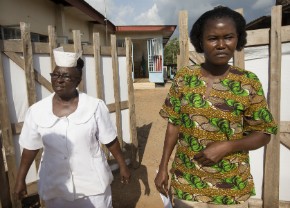Containing Ebola

Media reports on the outbreak of the deadly Ebola virus in West Africa have highlighted the dangers of travel to the region, the decision by some airlines to suspend flights, and the debates about the effectiveness and availability of anti-Ebola drugs. The condition of two American missionaries who were infected and transported to Atlanta for treatment received much attention.
Behind these stories lie critical, ongoing issues of basic health care in Guinea, Sierra Leone, Liberia, Nigeria, and neighboring countries. Combating Ebola primarily involves rudimentary public health measures—the use of protective clothing, effective quarantines, the sharing of information, and widespread education.
The Ebola epidemic has exposed the fragility of health-care systems in Africa. For example, when told that frequent washing with soap and water is important in preventing transmission of the virus, one person asked: “How can we wash all the time if we have no clean water to wash with?”




